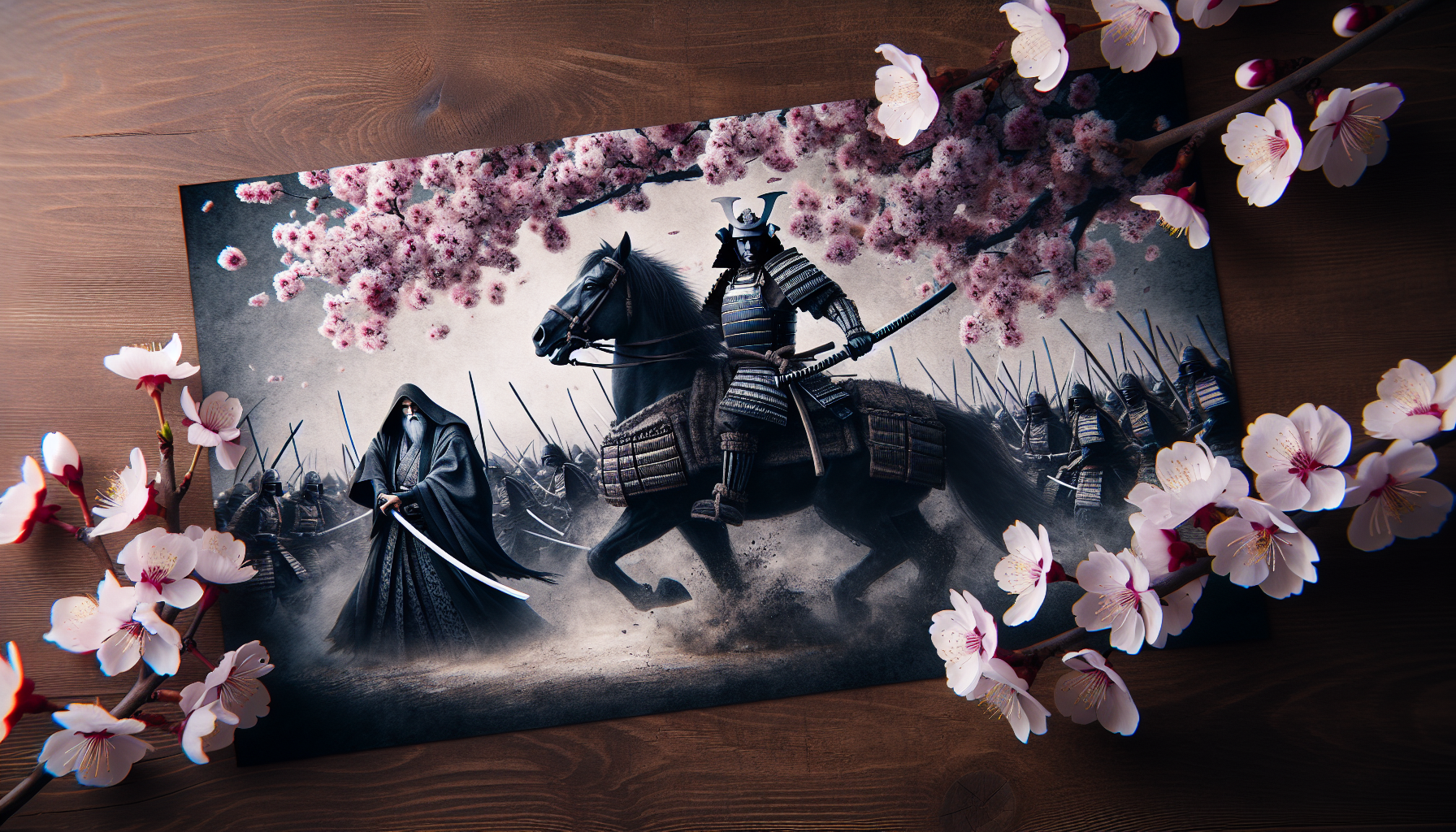Advertisements
Japan’s warriors, known as samurai and shoguns, are an important part of the country’s ancient history and culture. They were trained to be true masters of the art of war, following a code of conduct known as Bushido. In this article, we’ll explore the essence of Bushido and how it has influenced Japanese society over the centuries.
Bushido, which means “Way of the Warrior,” was a set of values and principles that the samurai strictly followed. These values included courage, loyalty, honesty, honor, and compassion. These warriors were considered true examples of virtue and bravery, and were respected and feared by all.
In addition to their combat skills, samurai were also known for their discipline and determination. They underwent rigorous training from childhood, learning combat techniques, war strategies, and etiquette. They were true masters of the sword and cavalry, and were always ready to protect their lord and their country.
Advertisements
The culture of the samurai and shoguns continues to exert influence in modern Japan, being remembered and celebrated in festivals, films, books and martial arts. The tradition of Bushido is still valued as an example of honor and courage, and the warriors of Japan are remembered as true heroes who dedicated their lives to defending their country and their people. Join us on a journey through history and discover the essence of Bushido in the culture of the samurai and shoguns.
Warriors of Japan: The Essence of Bushido in the Culture of the Samurai and Shoguns
The History of Japanese Warriors
Japan’s warriors, known as samurai, have played a pivotal role in the country’s history. Originating in the 12th century, samurai were skilled warriors who served feudal lords known as shoguns. They followed a strict code of conduct known as Bushido, which meant “the way of the warrior.”
The Samurai Code of Conduct
Bushido was based on values such as loyalty, honor, courage, and discipline. Samurai were trained from a young age to be masters of the art of war, but were also expected to be refined and cultured. They believed that death in battle was preferable to dishonor, and many samurai chose ritual suicide, known as seppuku, rather than be captured.
- Loyalty;
- Honor;
- Courage;
- Discipline.
The Influence of Bushido on Japanese Culture
Bushido was not only a code of conduct for the samurai, but also had a significant influence on Japanese culture as a whole. The values of loyalty, honor, and discipline are still considered important in Japanese society today. Discipline and respect for superiors are valued in many areas, such as education and business.
Advertisements

The tradition of the samurai and shoguns in Japan is one of the most iconic pillars of Japanese culture, whose lessons of courage, honor and discipline still resonate deeply in contemporary society. The samurai code of conduct, known as Bushido, not only guided their actions on the battlefield, but also shaped their behavior in everyday life, emphasizing virtues such as loyalty, self-control, respect, and justice. This set of principles, which values moral purity and the pursuit of excellence, is reflected to this day in the Japanese way of life, influencing areas as diverse as crafts, education, and the business world.
Bushido inspired, and continues to inspire, a relentless pursuit of perfection and integrity, characteristics that are present in traditional martial arts, in the discipline of schools, and even in everyday practices such as customer service and environmental stewardship. Honor, a core value for the samurai, is viewed with respect and reverence in many social interactions in Japan, where personal pride and dignity are highly valued.
Furthermore, the presence of samurai in Japanese history is not limited to the battlefield. The figure of the shogun, a military commander, played a crucial role in shaping the political structure of feudal Japan, and his legacy can be seen in Japanese architecture, literature, and even cinema. Reverence for these warriors transcends generations, with the samurai a symbol of endurance, discipline, and courage, whose teachings continue to inspire both the Japanese people and those around the world who seek to live with honor and determination.
Conclusion
In short, Japan's warriors, the samurai, played a crucial role in the country's history, following the Bushido code of conduct, which emphasized values such as loyalty, honor, courage, and discipline. This code not only guided the conduct of warriors, but also exerted a profound influence on Japanese culture, permeating aspects such as education and business.
Even today, the essence of Bushido lives on in Japanese society, reminding us of the importance of acting with virtue and integrity in all situations. The samurai left a lasting legacy that continues to inspire and influence current generations, reinforcing the idea of following a path of respect and discipline in all areas of life.
In short, Japan’s warriors embodied the ideals of Bushido and left a significant impact on Japanese culture, serving as examples of courage and devotion that echo through the ages. Their stories remind us of the importance of upholding the values of loyalty, honor, and discipline in our own lives, thus perpetuating the legacy of Japan’s warriors.
The influence of the samurai and shoguns on Japanese culture is so profound that their teachings and values continue to be studied and admired to this day. The tradition of Bushido not only shaped the mindset and behavior of Japanese warriors of the past, but also left a legacy of respect, discipline, and integrity for future generations. The importance of following a path of virtue and courage is constantly remembered and celebrated, reflecting the eternal reverence for honor and determination that the samurai and shoguns embodied throughout Japan’s history. These principles, with their emphasis on self-control, loyalty, and duty, continue to be a source of inspiration not only for the Japanese, but also for people around the world who seek to incorporate these values into their daily lives. The reverence for tradition and commitment to excellence that were so fundamental to the samurai continue to be seen as ideals that transcend time, reflecting the universal pursuit of inner harmony and justice. This legacy of courage and honor perpetuates the memory of these warriors and leaders, ensuring that even centuries after the end of the feudal period, their lessons still resonate with strength and relevance. The influence of the samurai and shoguns on Japanese culture is so profound that their teachings and values continue to be studied and admired to this day. The tradition of Bushido not only shaped the mindset and behavior of Japanese warriors of the past, but also left a legacy of respect, discipline, and integrity for future generations. The importance of following a path of virtue and courage is constantly remembered and celebrated, reflecting the eternal reverence for honor and determination that the samurai and shoguns embodied throughout Japan’s history.




